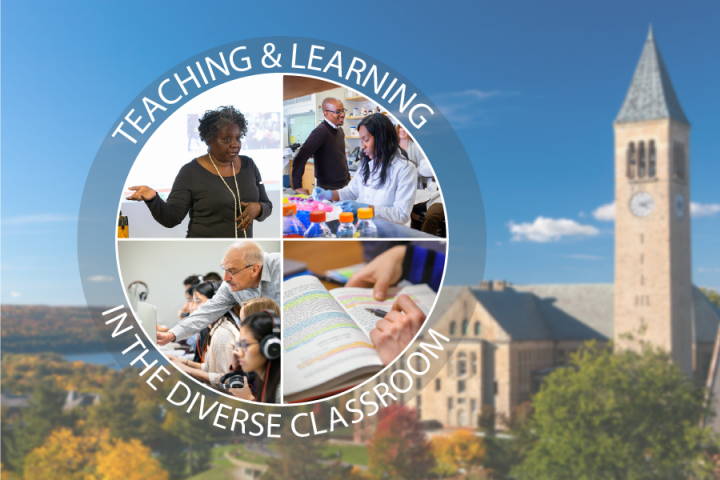Teaching & Learning in the Diverse Classroom Online Course
Dates & Registration
To be announced: Spring 2024 course dates and registration. Sign up for an update when further details are announced.
You are welcome to take the course solo, or we also encourage you to take it with a friend or group of colleagues. If you would like to lead a learning community for your colleagues, please email Melina Ivanchikova (tldc_cti@cornell.edu).
If you are unable to attend in June or are not a member of the Cornell community, consider taking our self-paced Teaching & Learning in the Diverse Classroom MOOC, which is open to all educators. You may enroll in the MOOC at any time, and the course will be open to you for 5 weeks from your registration date (or for an open-ended period if you choose the fee-based certificate option).
About the Course
Teaching & Learning in the Diverse Classroom is a four-week, instructor-paced online course for anyone with teaching responsibilities at Cornell, at any level of diversity expertise. Modules explore strategies for inclusive course design, social identity and self-reflection, and pedagogical practices that effectively support student engagement and a sense of belonging across difference.
Key Details
- Designed for anyone teaching at Cornell, across all disciplines
- Open to all experience levels—no expertise in diversity necessary
- 10 to 15-hour total time commitment anticipated
- Sign-up as an individual or in a cohort (e.g., within your college, department, or peer group)
- Modules are released weekly
Course Content
The course includes videos, activities, readings, and opportunities for discussion with peers within the Cornell community. In addition to inclusive course design and teaching strategies, participants will be invited to reflect on their own formative experiences as learners, teachers, and members of disciplines. The content is divided into 5 modules:
| Module | Theme | Topics |
|---|---|---|
| 1. | Teacher self-reflection |
|
| 2. | Student identities |
|
| 3. | Developing inclusive pedagogy |
|
| 4. | Examining curriculum |
|
| 5. | Institutional change |
|
Learning Outcomes
If you complete the course, you will be able to:
- Use a framework for inclusive course design to evaluate and plan for inclusive teaching
- Explore the implications of social identities—both students’ and instructors’—within your teaching and learning environment through reading, writing, and dialogue
- Identify evidence-based pedagogical strategies proven to support student-centered learning across interdisciplinary contexts
- Increase your confidence to model inclusivity and facilitate discussion, throughout the semester and when unexpected issues arise
- Evaluate your curriculum and discipline to identify patterns of exclusion and inclusion and discipline-specific approaches to thinking about diversity, equity, and inclusion

